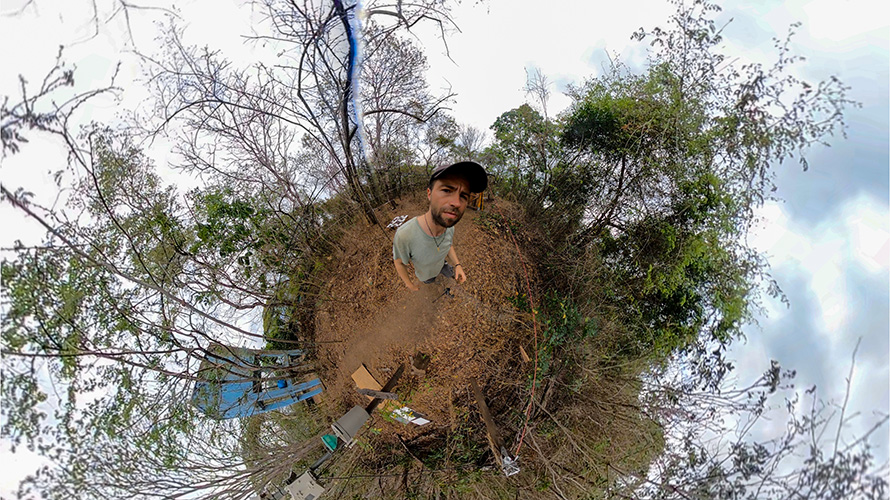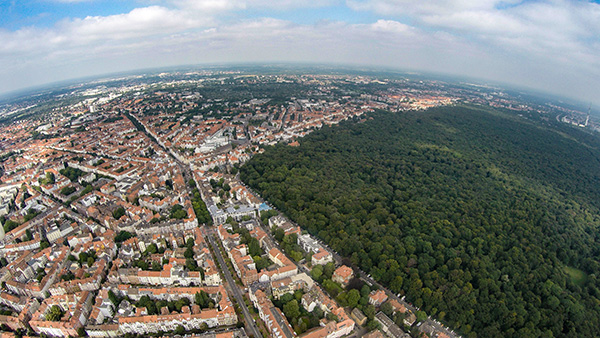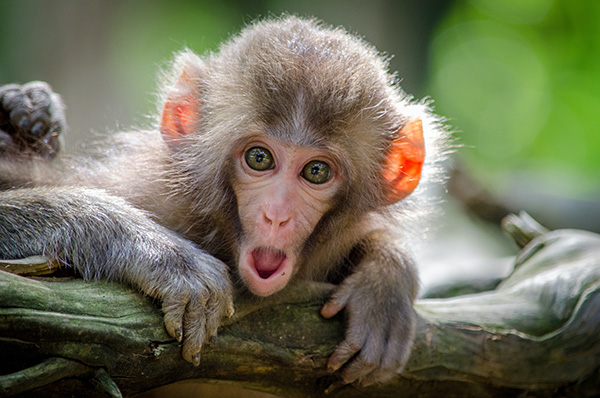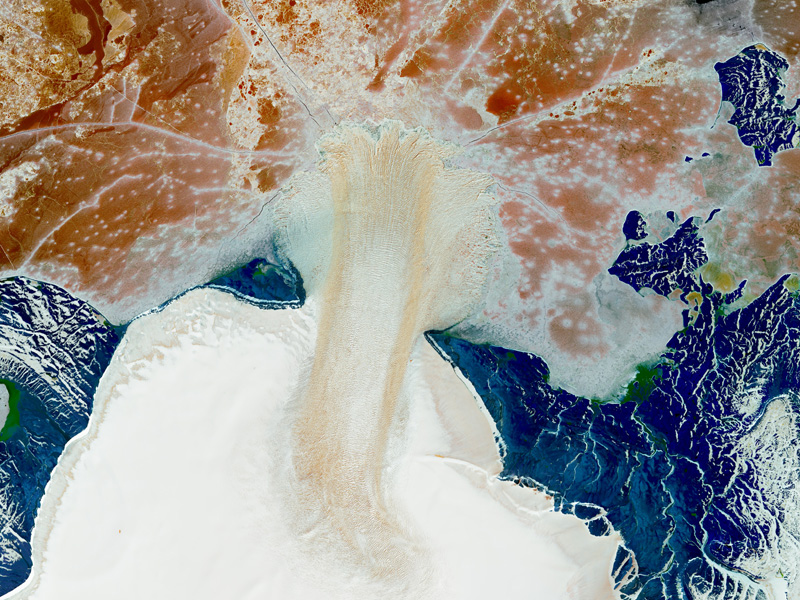Case Study: "Isodrones"
What secrets do deep roots harbour about the water cycle?
The international junior research group “Isodrones” allows a wide audience to participate in the development of the research initiative and their personal experiences via various media channels. This gives the public valuable insights into the innovative development of new methods and the lives of young researchers.
Research focus
Tracer-based geohydrology, drone-based imaging
Client
“Isodrones” Research Initiative at Technische Universität Braunschweig
Funding
Freigeist Programme of Volkswagen Foundation
Responsibilities
Bilingual full-service support – details at bottom of page
Duration
since 2019
Links
Deep roots, water transport processes and astonishing research methods
Public interest in topics relating to the environment and climate has never been greater in our society than it is today. The search for answers to the pressing questions about our future also drives the young researchers in the interdisciplinary and international “Isodrones” team. The research group was founded in 2018 by Dr. Matthias Beyer to better understand various aspects of the water cycle.
In their search for the secrets of deep roots, they combine traditional research methods based on the measurement of water isotopes with drone technology, which they are developing from scratch. This is why the team gave itself and its research initiative the name “Isodrones”.
In addition to research in Namibia, Sweden, the USA and Germany, the group’s main research location is in Costa Rica. Different climate zones are located close to each other there. Ideal conditions for their research project, albeit under the sometimes very demanding conditions of the tropical dry forest, in which the team has carried out various field campaigns lasting several months.
They document their work continuously. This enables them to report on their research and their lives as scientists in an approachable and authentic way.
Combining isotopes and drones
Research into deep roots is a niche activity. It is difficult because roots are hidden underground and previous destructive methods only provide limited information about causal relationships and dynamics. This is where “Isodrones” comes in with the development and use of new methods.
On the one hand, the researchers use tracer studies, which – rather unusually – they also analyse in situ, i.e. directly on site in the field using isotope laser spectroscopy, while continuously developing the methods further. From the outset, the scientists also had the ambitious goal of developing innovative supplementary and alternative methods. The team is focussing on drone-based imaging methods such as multispectral and thermal image analysis. In addition, systems are being developed with which drones/UAVs can take leaf samples from trees from great heights.
The research is intended to provide insights into various aspects of the water cycle. It is thus closely linked to the challenges caused by climate change and aims to contribute to practical solutions to the problems that arise as a result.
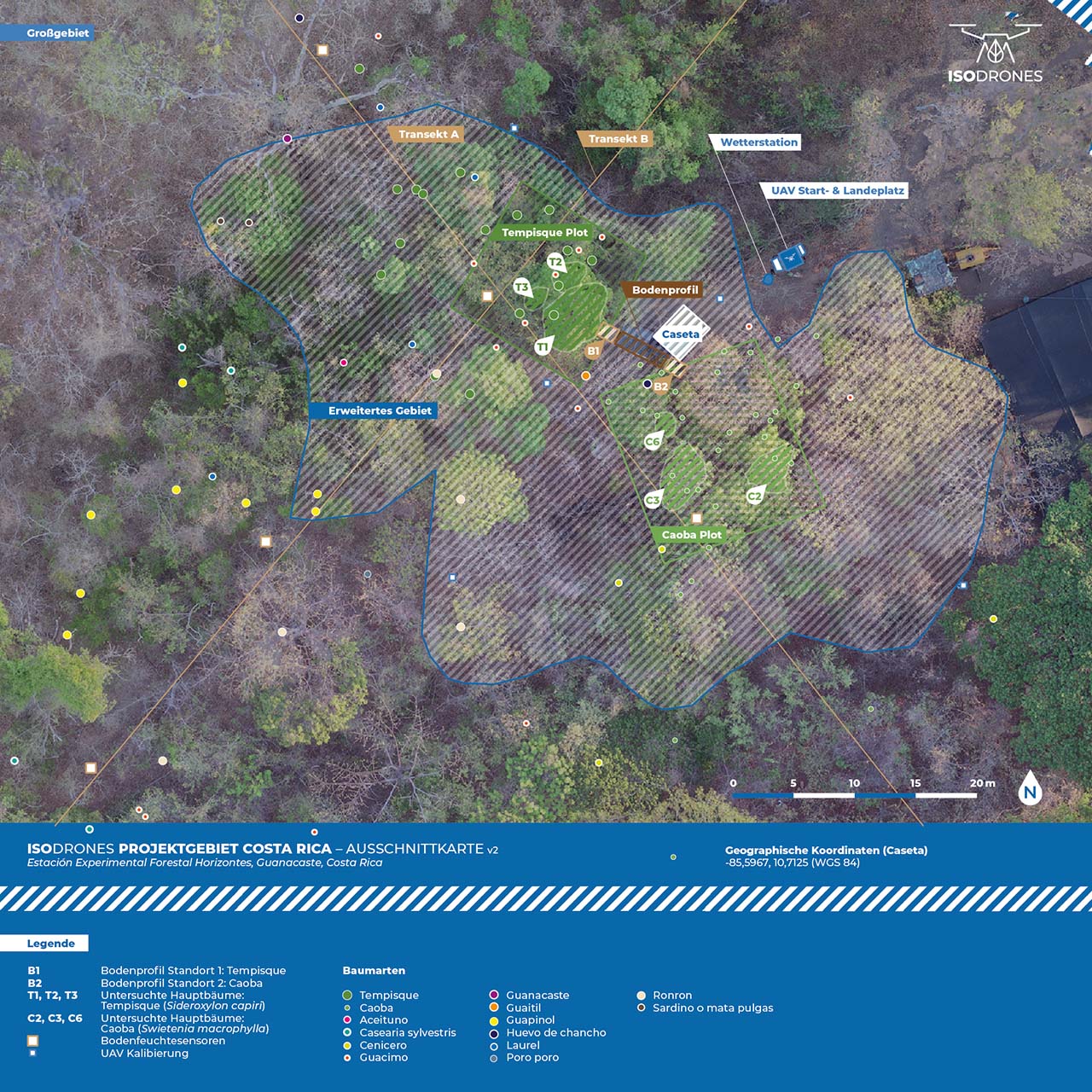
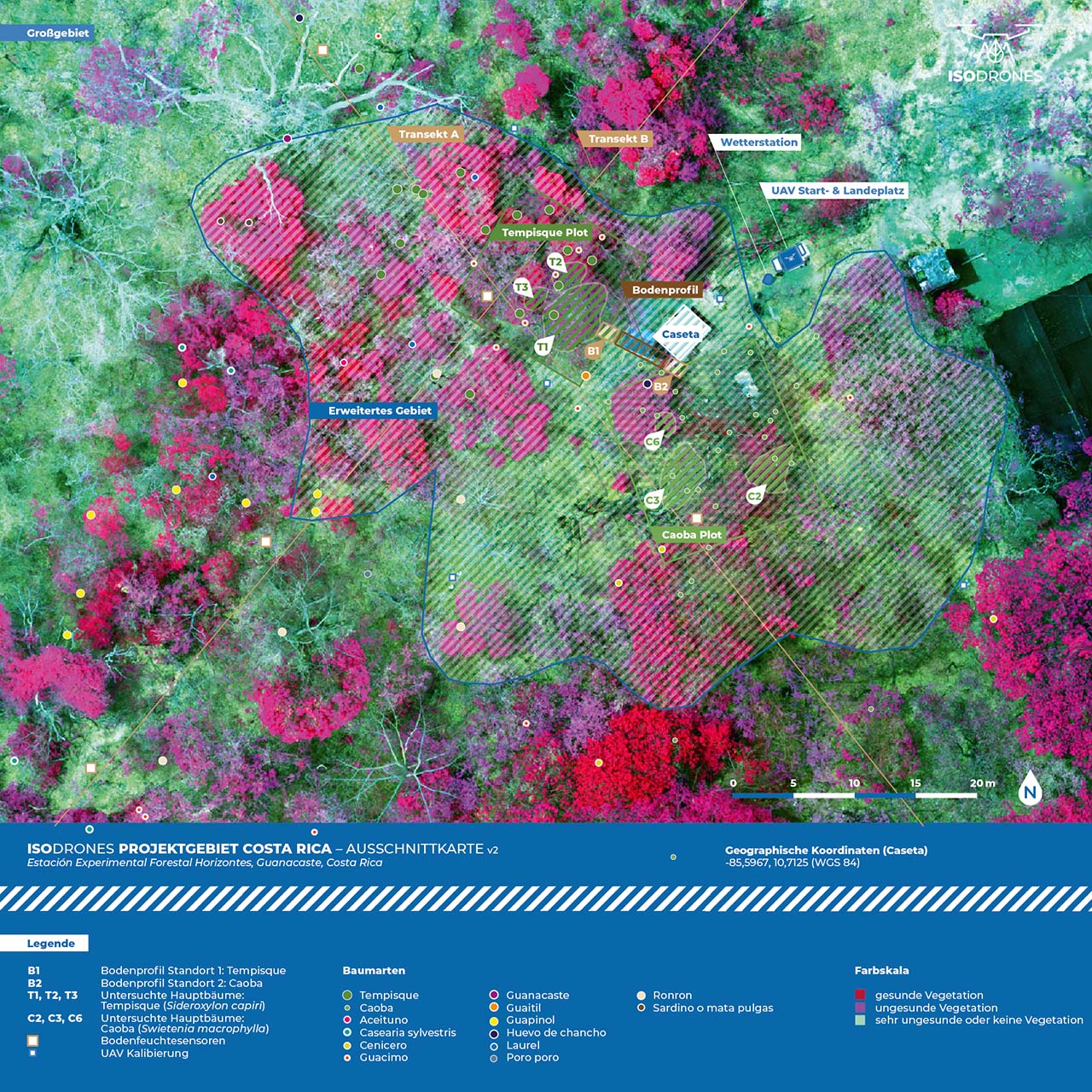
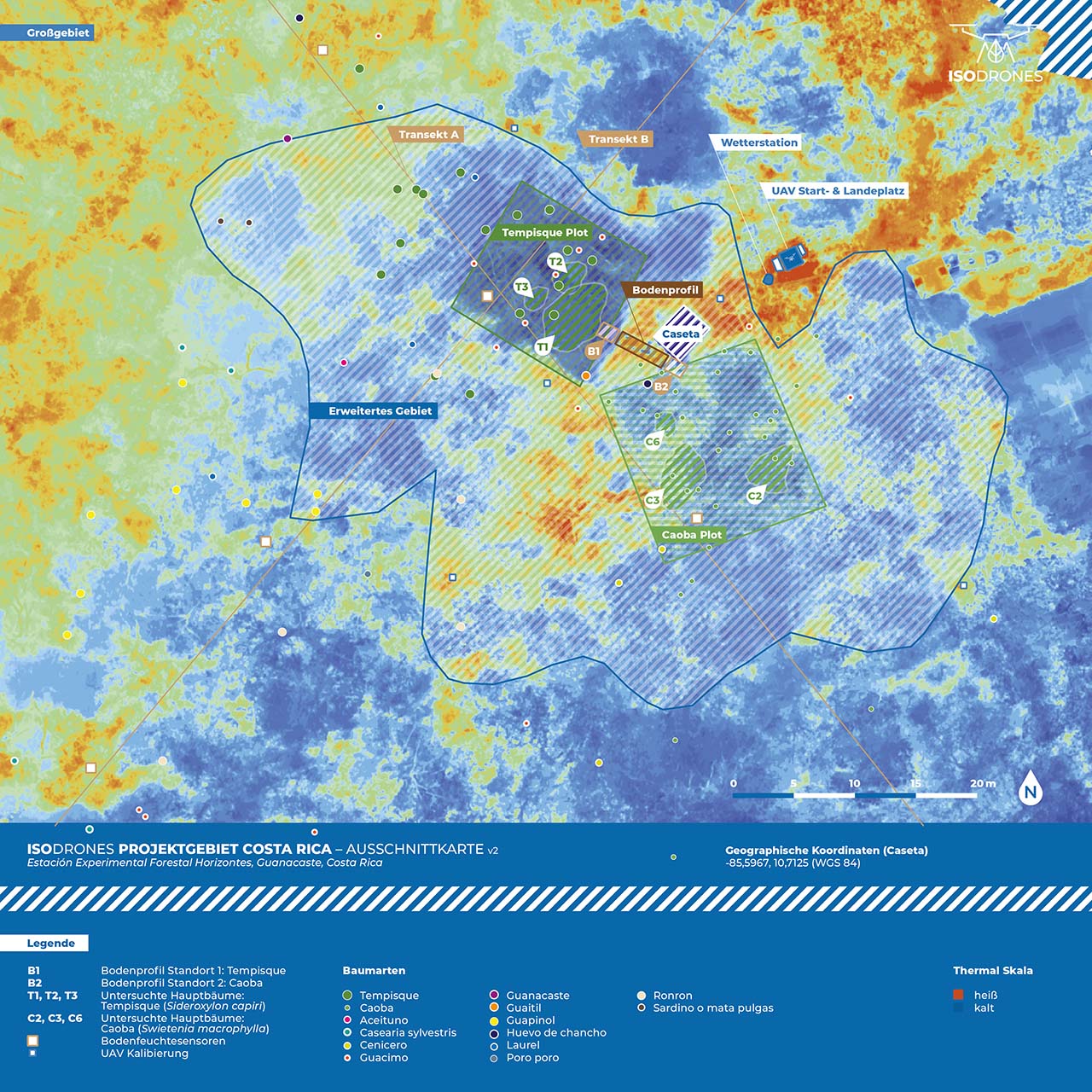
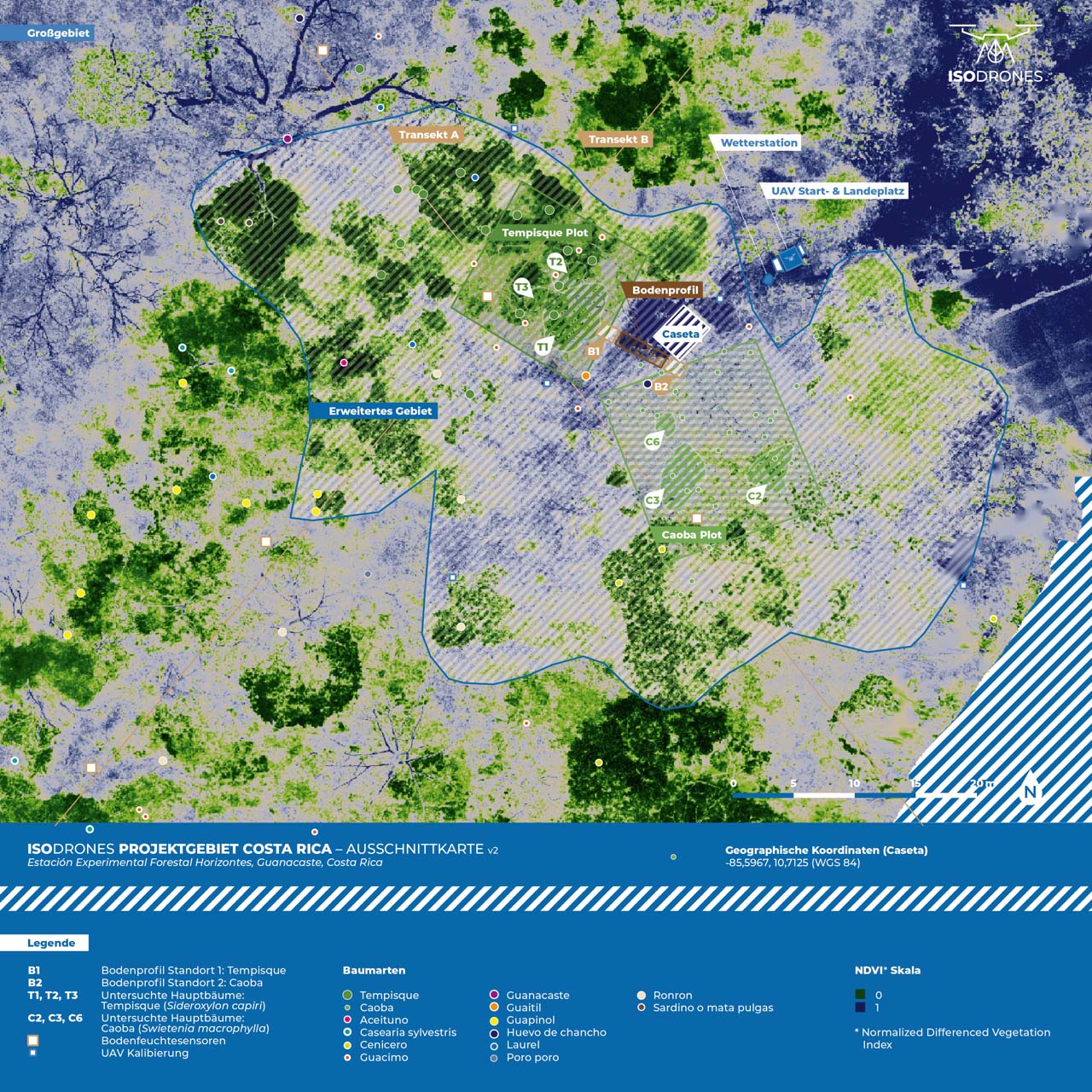
Together from application to implementation
Dr. Beyer’s Isodrones research project is funded as part of a Freigeist-Fellowship from the Volkswagen Foundation, which supports particularly high-risk research. The foundation provides its fellows with additional funding for science communication, which can be applied for separately.
The collaboration with “Isodrones” began with an exchange of ideas about the project’s SciComm opportunities. The development of the concept for a 4-year cross-media campaign to accompany the project formed the basis for the application for funding.
One of the biggest challenges in implementing the project was the COVID-19 pandemic, which began right at the start. This significantly impaired the implementation of the original concept. This meant that the field trip to Costa Rica could not take place, which is why the film production company planned for filming on site was also not used. Instead, we quickly equipped the “Isodrones” team with our own field-ready video, audio and 360° video equipment. In (corona-compliant) workshops, we trained the team in the use of this technology as well as in camera work and the creation of interviews and vlogs. This enabled the researchers to report independently on the situation and their work in the special pandemic situation. We took over the post-production and creation of the videos.
Innovative SciComm for innovative research
One main part of the WissKomm project is an application for the VR glasses Meta Quest (previously Oculus Quest). The “Isodrones 360° Interactive Research Site” – a partly guided, partly interactive 360° video tour of the main research site in Costa Rica – was created in line with the concept in the funding application.
This part of the project is presented in a separate case study.
How do I reach my target audience?
One of the desired target groups for “Isodrones” media work is young people interested in studying and first-year students in the natural sciences. A particular focus is on girls and women, who are addressed directly by the researchers Kathi, Mareike and Luise.
As the team initially had no social media experience, they were accompanied, trained and supported by specialists in the various areas during the first two years. Since then, the team has successfully run four channels independently and these activities have become part of the work routine. For exchange, recruitment, network maintenance and for more visibility of their research, but also for topics such as #womeninscience and #mentalhealth.
Since the pandemic has subsided and the research work has been relocated to Germany, where the methods developed in Costa Rica are being applied and improved, we are following the team once again intensively with the camera at the end of the WissKomm project. The aim is to shed light on some aspects that have not yet been considered.
Our contribution
Services
Bilingual
Work process: German & English
Products: German & English
Presentation
Shares of the total scope of services
Products
Workshops, logo, logo animation, corporate design, on-air motion graphics, business cards, presentation templates, infographics, explanatory films, social media graphics & videos, vlogs, video documentaries, portraits, Meta Quest 360° application, stickers, signs, shirts, hoodies, posters
Partners
- Team Isodrones
- Michael Cranston: Logo design
- Más Social, CR: Social media campaign
- Tilla Theiss: Graphic design
- Filmflow: Motion graphics, 360°-Video consulting & production
- Jan Lösch-Schloms: Video editing
- Ariane Wilhelmi: Social media, video editing
- Astrid Schicht: Social media marketing
Further work
Amazed?
Arrange a non-committal and
free introductory meeting.
